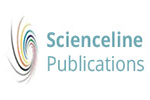(2020) Prevalence and Risk Factors Associated with Cryptosporidium Infection in Raw Vegetables in Yazd District, Iran. World's Veterinary Journal. pp. 260-266. ISSN 23224568 (ISSN)
|
Text
WVJ 10(3) 260-266, Sep 25 2020.pdf - Published Version Download (646kB) |
Abstract
Consumption of raw vegetables is an important route of parasites transmission. It is an important source for foodborne outbreaks in both developed and developing countries, and outbreaks of parasitic diseases in humans. The objective of the present study was to detect the presence of Cryptosporidium oocysts in raw fresh vegetables in Yazd city, Iran, from 2017 to 2018. A total of 275 fresh vegetable samples were collected and tested using a sucrose flotation medium of 1.21 specific gravity and a Modified Ziehl-Nielsen staining procedure. Of the 275 vegetables examined, 85 (31.5%) samples were positive for Cryptosporidium oocysts. Lettuce had the highest rate (n= 16, 47.1%) of contamination with Cryptosporidium oocysts while basil and parsley showed the lowest rates of contamination (n= 6, 20%). There was a significant association between the occurrence of Cryptosporidium oocysts and the investigated vegetable types. According to the locations of the vegetable field, Amir Abad and Bahaman Hospital area had the highest (n: 16, 59.3%) and lowest (n= 5, 18.5%) rates of Cryptosporidium oocysts contamination, respectively. The plant part showed that the root vegetables had the highest contamination rates (n= 41, 45.6%), followed by leafy vegetables (n= 44, 24.4%). The analysis further indicated a significant association between the occurrence of Cryptosporidium oocysts and the route of vegetable consumption. Based on these results, the edible vegetables in Yazd city are one of the potential sources of Cryptosporidium infections in humans. Moreover, the vegetable fields within the city of Yazd are contaminated with Cryptosporidium oocysts which can pose public health problems.
| Item Type: | Article |
|---|---|
| Keywords: | Cryptosporidium, Oocysts, Raw vegetables, Yazd city, Iran. |
| Subjects: | Q Science > Q Science (General) S Agriculture > SF Animal culture |
| Divisions: | World's Veterinary Journal (WVJ) |
| Page Range: | pp. 260-266 |
| Journal or Publication Title: | World's Veterinary Journal |
| Journal Index: | Scopus |
| Volume: | 10 |
| Number: | 3 |
| Publisher: | Scienceline Publication, Ltd |
| Identification Number: | https://doi.org/10.36380/scil.2020.wvj34 |
| ISSN: | 23224568 (ISSN) |
| Depositing User: | Dr. Alireza Sadeghi |
| URI: | http://eprints.science-line.com/id/eprint/382 |
Actions (login required)
 |
View Item |

